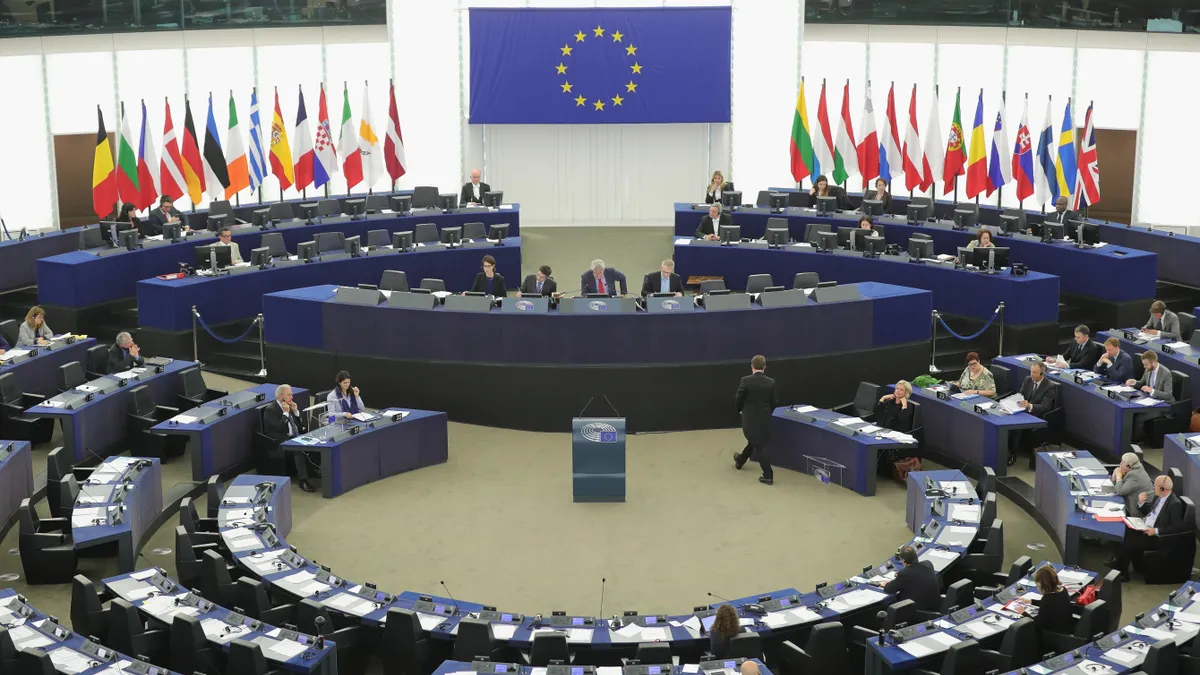Dive Brief:
- Tech giant Apple is loosening its grip on payments in Europe. The company announced in a Thursday press release that it would give iOS developers the option to use third-party payment systems. Apple will also use its upcoming iOS software update to allow apps access to the contactless payment functionality of the iPhone, the release said.
- The changes are limited to the European Union, and are expected to take place by March 6 to comply with the EU’s Digital Markets Act. Apple will still collect fees on purchases made through iOS apps, the Jan. 25 release said.
- Nonetheless, Apple’s pivot came with a warning: “The new options for processing payments and downloading apps on iOS open new avenues for malware, fraud and scams, illicit and harmful content, and other privacy and security threats,” the release said.
Dive Insight:
The changes in the EU represent a serious crack in Apple’s “walled garden” strategy, in which the Cupertino, California-based company tightly controls the hardware and software of its devices.
Apple currently charges a 30% fee on in-app purchases, and requires developers to use its own payment processing system. That amount would drop to between 10% and 20% in the new plan, depending on whether the app developers opt to use Apple’s app store and payment processing services.
But those changes may not be enough to satisfy rivals looking for relief from Apple’s payments fees. In a Thursday post on X, formerly Twitter, Epic Games CEO Tim Sweeney called Apple’s plan “a devious new instance of Malicious Compliance,” with “new Apple taxes on payments they don't process.”
Epic, maker of the popular video game Fortnite, said this month that it would challenge a similar plan in the U.S. under which Apple said it would permit third-party payment processing.
The tech giant has been under increasing antitrust pressure in the United States, as it faces multiple lawsuits challenging its payments requirement that app developers use its payment processing system. It has also faced pushback on its restricting of devices’ ability to make contactless payments.
The U.S. Department of Justice may open its own antitrust case against Apple in the first half of this year, according to a report by Bloomberg.
Apple did not immediately respond to requests for comment on allowing third-party payment processors and opening up contactless payments in the EU.













